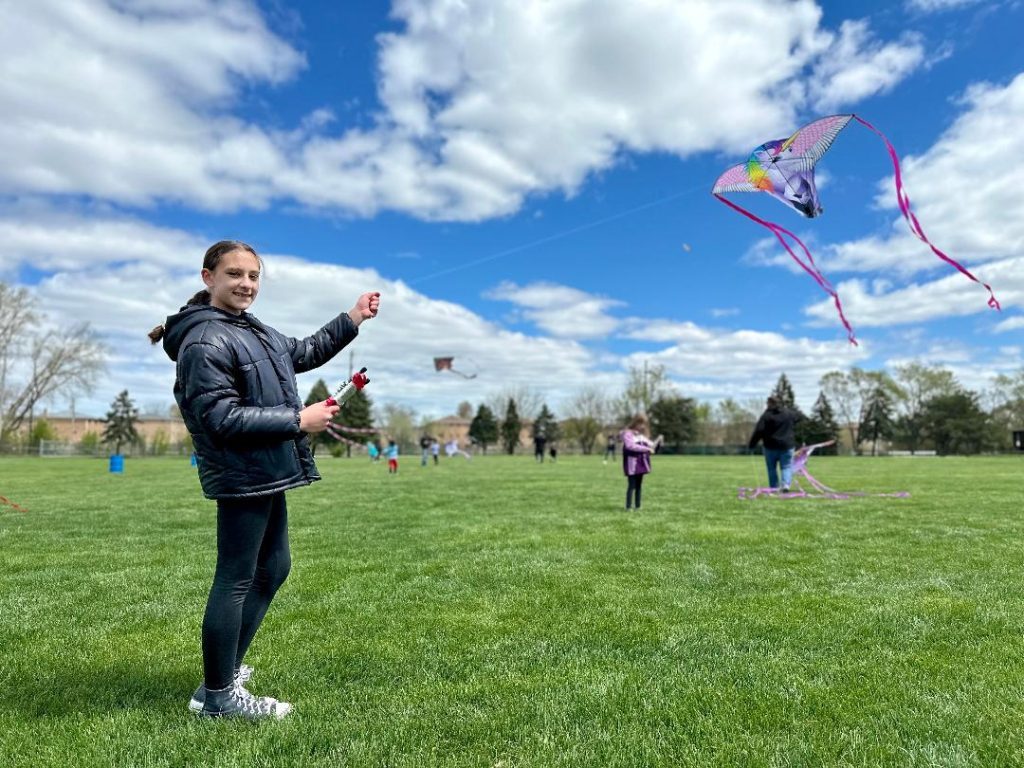
From Better Government Association: Biden’s infrastructure push challenges Illinois’ car-centric approach
By DANIEL C. VOCK
Better Government Association
If President Joe Biden gets his infrastructure package through Congress, it could prompt Illinois and other states to reconsider how much of its transportation networks are built for cars and trucks.
Biden’s $2.3 trillion American Jobs Plan is far from becoming law, and its details remain in flux. But much of the Democratic president’s vision runs counter to decades of transportation officials’ car-centric thinking by emphasizing public transit, cutting pollution and helping modernize existing neighborhoods over providing incentives for suburban sprawl.
“It’s been decades since President [Dwight] Eisenhower created the interstate highway system, so we have decades to overcome in terms of transit [spending] versus highway spending. That’s because we have a lot of catchup [to do],” said Jacky Grimshaw, the vice president for governmental affairs at the Center for Neighborhood Technology. “But we [in Illinois] are on the road to doing that catchup.”
Still, the state’s focus remains overwhelmingly on preserving — and in some cases expanding — its road networks.
One telling example is the $45 billion public works bill Illinois Gov. JB Pritzker signed three years ago. Some activists praised the Rebuild Illinois capital plan because it provides more reliable state funding for public transit and sets aside funds for bicycles and walking routes. But more than half of the plan’s spending is for roads and highways. Roads get $25.3 billion under the state plan compared to, for example, $4.7 billion for mass transit.
Rebuild Illinois depends on $9 billion in federal transportation funding that regularly flows to the states from the U.S. government. Biden’s American Jobs Plan would come on top of that.
But the federal government and the state of Illinois need each other to make major changes in transportation policy. The federal government supplies most of the money for big highway projects, but state governments determine how that money is spent. Both are instrumental in other facets of transportation, too, whether it’s paying for new “L” lines in Chicago, building bike paths in the suburbs or adding Amtrak services downstate.
Even if Biden gets a bill through Congress, its success will rest with states such as Illinois. The Illinois Department of Transportation, after all, controls 16,000 miles of state highways. IDOT and the Illinois State Toll Highway Authority together control nearly 2,000 miles of interstates, the third biggest interstate network of any state in the country.
“This is the beginning of the discussion of fundamentally rethinking what we invest in,” said Kevin Brubaker, the deputy director of the Environmental Law & Policy Center. “Biden is suggesting that the era of just building more highways is over. It’s time to establish societal goals — mobility, fairness, addressing climate change — and then have our investments follow those goals. [We can’t] just throw more money at highways.”
Cars and trucks are now the biggest source of greenhouse gas pollution in the United States. They produce even more of the harmful gases than the electric power industry, which has been at the center of debates in Springfield this year over its carbon dioxide emissions.
Christian Mitchell, Pritzker’s deputy governor who oversees public safety, infrastructure, energy and the environment, said the Rebuild Illinois program helped shift Illinois’ infrastructure spending. It raised the state’s gas taxes for the first time since 1990 to pay for improving roads, improving transit services and building more bike lanes and assets for pedestrians. The Pritzker administration also has encouraged people to buy and drive electric vehicles, especially those made in Illinois.
“We got a head start on a bunch of this stuff,” Mitchell said. “Frankly, the American Jobs Plan would accelerate that work and expand it to additional opportunities.”
But some advocates in Illinois still see a disconnect between the president’s goals and the state’s transportation priorities.
“From our perspective, IDOT has not yet shown they’re genuinely interested in prioritizing climate and racial equity in their build-out of the transportation network across the state,” said Kyle Whitehead, a spokesperson for the Active Transportation Alliance, a Chicago-based advocacy group for pedestrians and cyclists.
Whitehead has a long list of frustrations, both large and small, with IDOT and other large transportation agencies in the state. Sometimes it’s outrage over a new highway project. But there also are plenty of irritations over the difficulty of installing sidewalks, bus routes or bike lanes on state-owned roads.
“One of the benefits of the federal package prioritizing equity and climate is it could help bring IDOT along, and the region along, in terms of how we’re looking at transportation and the impacts that it has on society at large,” Whitehead said.
What’s more, Brubaker said, it is hard to determine how well IDOT is prepared to meet the goals of the Biden infrastructure push because the state agency’s criteria for choosing projects are a “black box.”
IDOT’s six-year plan states it uses a “data-driven” approach to measure how projects further its goals of improving the economy, livability, mobility, resiliency and stewardship. But it doesn’t reveal what data it uses to judge those projects, Brubaker said.
“Whether the state is well prepared to pivot to transportation investments that address climate change, racial equity and other goals of the Biden administration is an unknown,” he said.
That could change soon, though. The legislature just passed a bill this spring that would require IDOT and transit officials in the Chicago area to evaluate new projects on performance metrics starting next year. The bill still needs Pritzker’s signature.
Paul Wappel, a spokesperson for IDOT, said the agency “looks forward to working with the Illinois delegation and other stakeholders on a federal infrastructure plan that advances long-term, sustained investment while simultaneously supporting users across all modes and diverse populations, building equity, respecting the environment and encouraging innovation.”
Last month, IDOT officials said the agency planned to spend $2.58 billion on roadway expansions over the next six years, which is one-sixth of its overall spending. Among the projects are rebuilding Interstate 190 near O’Hare International Airport, replacing the Interstate 270 bridge over the Mississippi River near St. Louis and widening Interstate 57 in southern Illinois.
Two-thirds of IDOT’s planned spending would be used for maintaining existing roads and bridges. Another 8% would go toward “safety and modernization,” and the remaining 9% would pay for support.
“Even in a pandemic — especially in a pandemic — our transportation systems connect the lives of our residents and our communities,” Pritzker said while unveiling plans to improve more than 3,300 miles of road last July. “Our roads and bridges deliver Illinoisans to work and home again, to school, to the pharmacy, to the doctor’s office.”
Kate Lowe, a professor of urban planning and policy at the University of Illinois at Chicago, said she hasn’t seen major changes in how the state designs transportation projects, despite all the talk at the state and federal level about traffic safety, racial equity and non-automobile forms of transportation.
“We [in Illinois] still have projects in the pipeline that don’t center those goals and still prioritize automobile speed,” she said.
Lowe pointed to the seemingly endless reconstruction of the Jane Byrne Interchange in Chicago, where the Eisenhower Expressway meets with the Kennedy and Dan Ryan expressways. The work started in 2013 and is still ongoing, and the result will be that “it will save cars a few seconds,” Lowe said.
Similarly, Lowe said plans by IDOT and the Chicago Department of Transportation to rebuild North Lake Shore Drive are focused too much on catering to rush hour drivers who are already well served by infrastructure in the Chicago region.
The average commute time each way for Chicago-area drivers is 29 minutes, while it is 43 minutes for “L” riders and 44 minutes for those taking buses.
“Illinois is losing population, so I don’t think we have much of a case for expanding automobile infrastructure of any type,” Lowe said. “And we know more lanes attract more cars, and you end up with congestion.”
Wappel, the IDOT spokesperson, said road construction projects improve safety and reduce air pollution from stalled traffic. They don’t just improve travel times.
The Jane Byrne Interchange, for example, is considered one of the biggest freight bottlenecks in the nation, he said. It was built six decades ago, and sections still had ramps with single lanes with no shoulders. Wappel also said the North Lake Shore Drive project is still in the planning phase, and all options have a transit component.
Erin Aleman, executive director for the Chicago Metropolitan Agency for Planning, said communities in the Chicago area are running out of room to keep expanding their roadways.
“There are some strategic needs to enhance the roadway system for safety reasons,” said Aleman, whose agency coordinates federal transportation spending in the region. “But we’re landlocked.”
Still, she said she’s seen authorities come up with clever ways to use existing infrastructure.
Pace, the suburban bus agency, now runs buses on the shoulders of interstate highways when the roads are congested, she noted. Future projects could include improving suburban rail crossings so trains don’t delay traffic and add to local air pollution or enacting congestion pricing on Chicago-area toll roads to encourage drivers to travel outside rush hour, Aleman said.
The Regional Transportation Authority, which oversees transit operators in the Chicago area, is shifting its focus from finding state money to pay for overdue repairs to bigger societal goals, said Leanne Redden, the agency’s executive director.
There are many reasons for the shift, including the inequities that were highlighted during the COVID-19 pandemic and new state funding. But Biden’s infrastructure plan played a role, too.
“The environment, equity and accessibility were always on our minds, but now it’s coming to the forefront,” Redden said. “It’s encouraging and exciting to see the federal government is now also talking about those as a formal part of their agenda. The benefits and the impact of transit systems fit squarely in that, and we want to be ready to use as many of those dollars as we can.”
The pandemic forced some area transit agencies to quickly change how they worked. Metra ran fewer trains, and Pace began running fewer buses to Metra stations and more buses to UPS and Amazon facilities to ferry people to their jobs there. The Chicago Transit Authority, though, was one of the only transit agencies in the nation that did not reduce bus or train services during the pandemic.
If there’s one project advocates hold up as a model for how Biden’s infrastructure proposal could change lives in Illinois, it’s the effort to extend the CTA’s Red Line on the far South Side of Chicago.
The Red Line now ends at 95th Street, at the southern end of the Dan Ryan and 4 miles from the city’s southern border. The 95th Street stop is at the edge of Roseland, a Chicago neighborhood that is 96% Black and often referred to by urban planners as a transit desert.
For Andrea D. Reed, the executive director of the Greater Roseland Chamber of Commerce, the situation limits residents’ options for jobs in other parts of the city and makes it harder for Roseland to attract businesses.
Residents who live in Altgeld Gardens at the very southern edge of the city, for instance, must travel an hour and take three buses to shop at a nearby Walmart. By car, it takes less than 10 minutes. A Red Line extension could solve that problem — and many more.
In December, the federal government gave the CTA the go-ahead to plan the Red Line extension, which is expected to cost $2.3 billion. The federal government could provide up to half of the funding, but the CTA will have to find local money to match. Chicago officials hope Biden’s infrastructure bill, if it passes, could make it easier to pay for the Red Line extension.
The project could be a boon not only for residents’ transportation needs but also for any construction jobs, Reed said.
“We need the Red Line to be done,” she said. “It’s not just about the train. It’s about how it can improve the quality of life for residents in the area.”
This story was produced by the Better Government Association, a nonprofit news organization based in Chicago, and distributed by Capitol News Illinois, a nonprofit news organization covering state government and funded by the Illinois Press Foundation and the Robert R. McCormick Foundation.
Local News
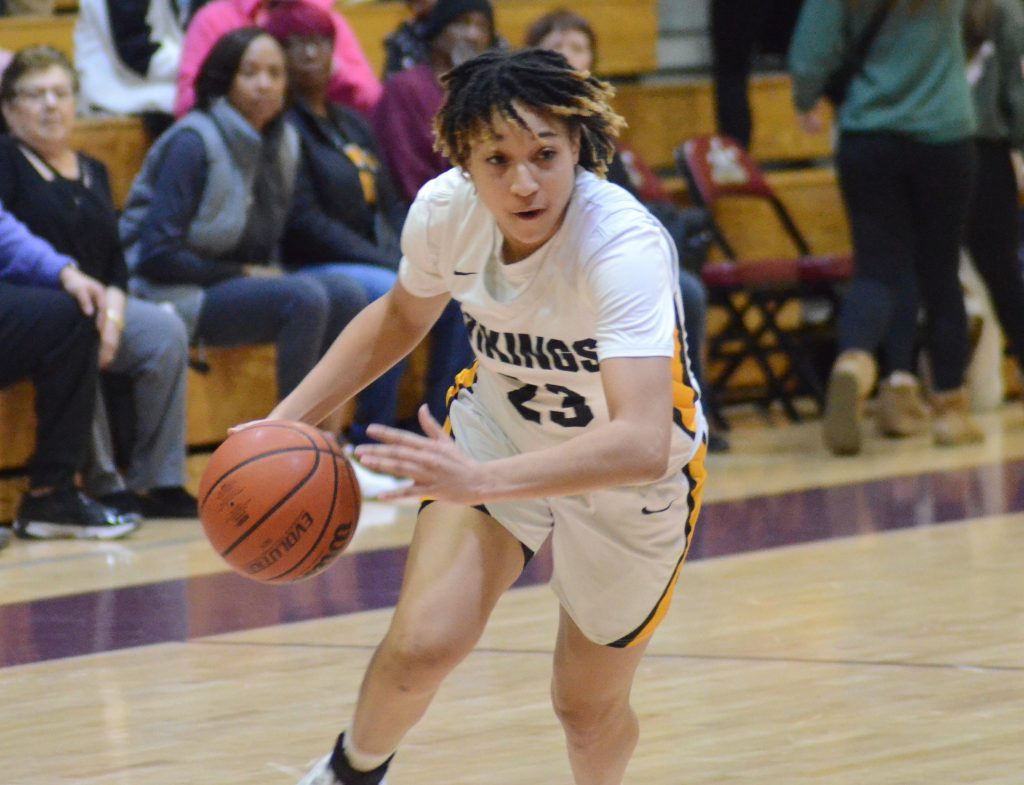
St. Laurence hoops teams top honor roll
Spread the loveBy Jeff Vorva Correspondent Area basketball teams proved to be strong on the court and in the classroom this season, and St. Laurence was the leader of the pack. The Illinois Basketball Coaches Association compiled a list of the top academic teams, and the area did well. In Division 3 girls, St. Laurence…
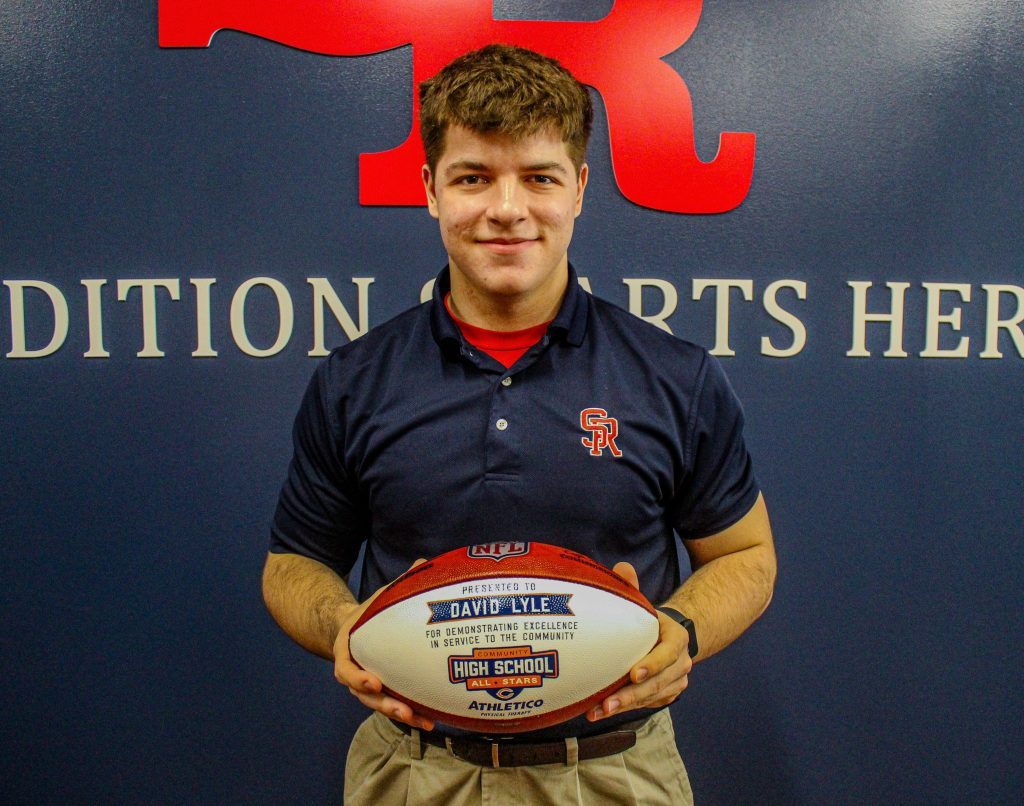
Chicago Bears recognize St. Rita senior with All-Star award
Spread the loveBy Jeff Vorva Correspondent Chances are good that few outside of St. Rita football circles know who David Lyle is. With good reason. Lyle missed his senior season for the Mustangs last fall after sustaining a serious knee injury. He even postponed having knee surgery so that he could take care of his…
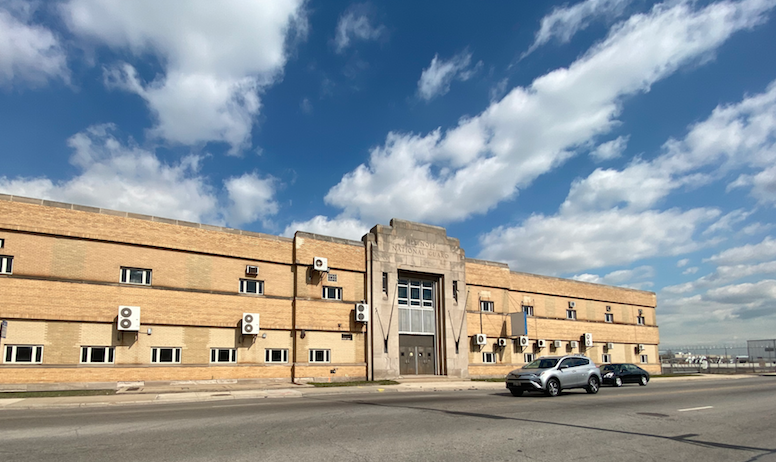
Pols want 63rd St. armory for new police HQ
Spread the love. Porfirio, Guerrero-Cuellar push plan in Springfield . By Tim Hadac Any plans the Chicago Department of Aviation may have had for the vacant Army National Guard Midway Armory, 5400 W. 63rd St., may be grounded, at least for now. Several elected officials are eyeing the parcel as the headquarters of a new…

Her back against the wall, Stacy needs help
Spread the love. By Tim Hadac Editor Clear-Ridge Reporter & NewsHound (708)-496-0265 . Clearing and Garfield Ridge have earned a reputation as a place where people look out for each other—and that sometimes means caring for each other in times of need. Today, I want to talk about one such person, who sure could use…

It’s (pizza) party time at OLS
Spread the love. Third graders at Our Lady of the Snows School break into cheers as they learn they’ve won a pizza party for selling more raffle booklets than any other class. The recent Grand Raffle fundraiser brought in about $6,000. Parents looking for a grade school for their sons and daughters for 2024-25 are…
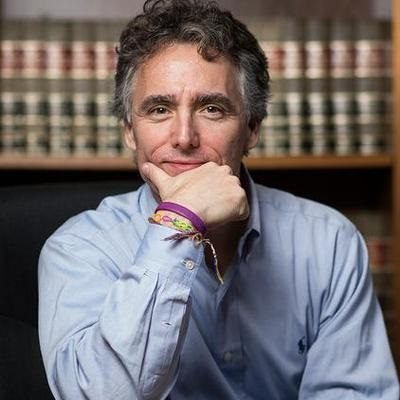
Dart wants free mental health care for first responders
Spread the love. From staff reports The Illinois Senate has passed legislation proposed by Cook County Sheriff Thomas J. Dart that eliminates out-of-pocket expenses for first responders seeking mental health treatment. “We ask first responders to be constantly exposed to traumatic and dangerous situations to protect us,” Dart said. “This legislation is a solid step…
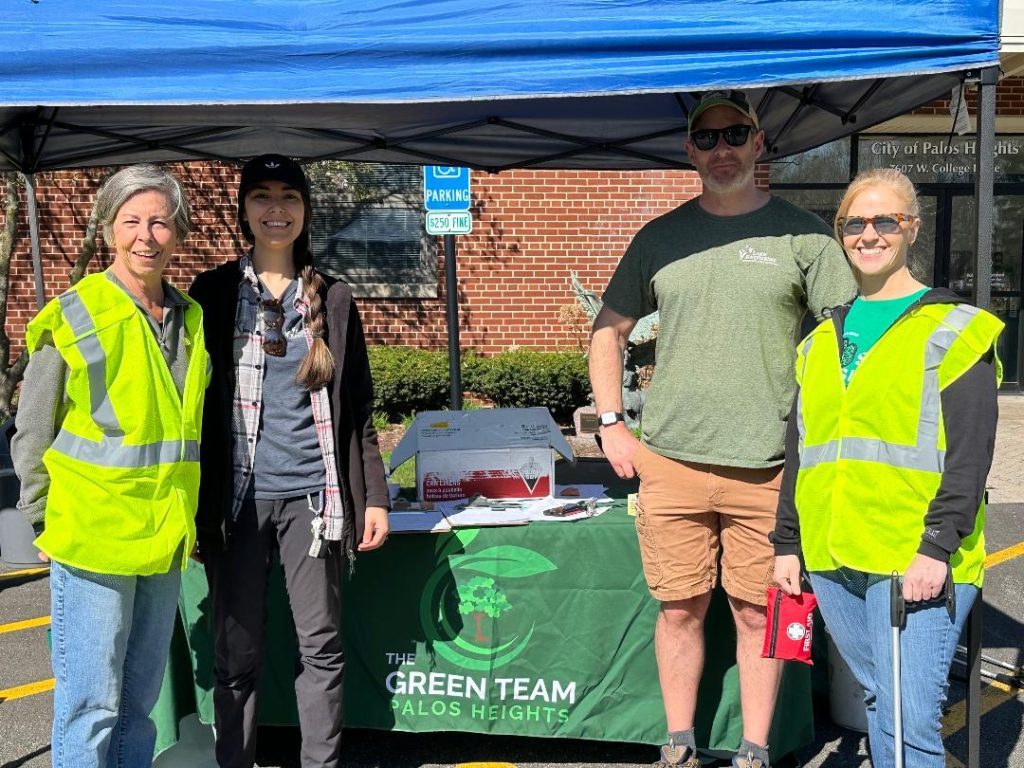
Volunteers give Palos Heights a spring cleaning
Spread the loveBy Kelly White Palos Heights works hard to keep its city beautiful. Gathering residents together for a day of cleaning and fun was the Palos Heights Green Team with a Clean Up Day on April 13. “This event invited everyone in our community to do their part in combating pollution by having a…

Hunt man who tried to rob Chase Bank
Spread the love. FBI looking for tips from public . From staff reports FBI officials are appealing to the public for help in finding a man who attempted to rob a Southwest Side bank branch. The bandit tried to rob the Chase Bank branch at 5687 S. Archer (just west of Laramie) at about 11…

Casten lauds Biden for ‘clean energy’ move
Spread the love. From staff reports A move designed to spur the responsible development of clean energy on America’s public lands was recently lauded by U.S. Rep. Sean Casten (D-6th). The congressman, co-chairman of the House Sustainable Energy and Environment Coalition (SEEC) Clean Energy Deployment Task Force, joined by co-chairman Mike Levin (D-Calif.), released a…
Neighbors
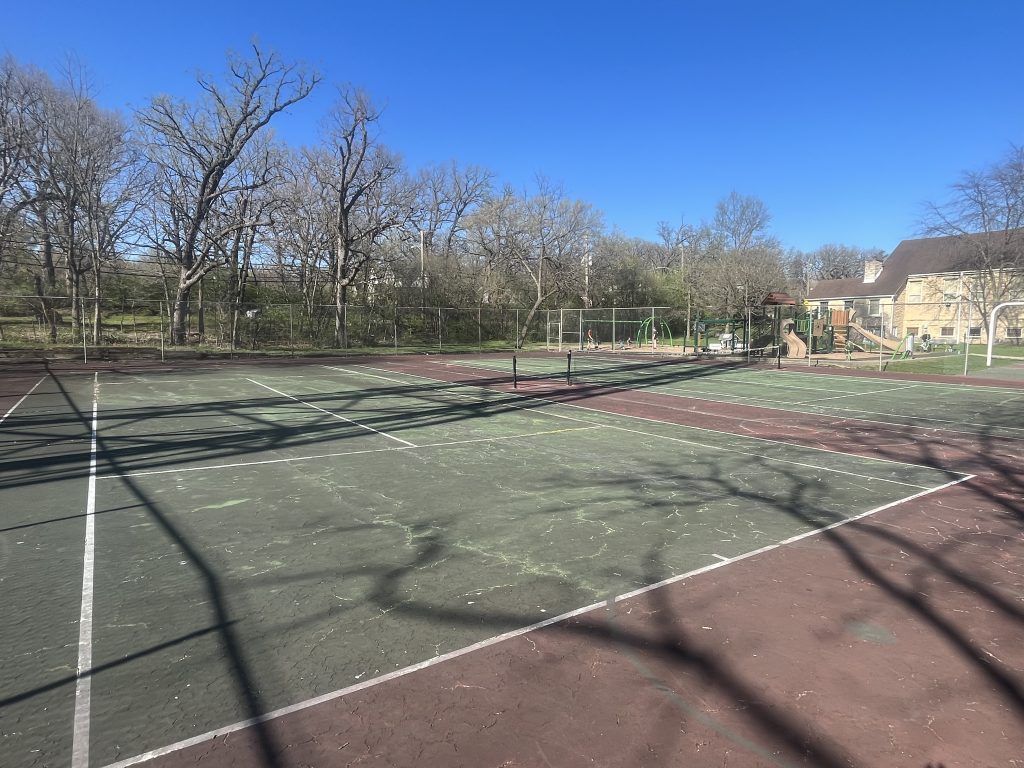
Pickleball courts coming to Palos Park
Spread the loveBy Jeff Vorva There will finally be outdoor pickleball in Palos Park. In a process that went longer than anticipated, the Palos Park Village Council was able give the green light to get a pickleball project started on the Village Green. The council voted April 8 to award the contract to U.S. Tennis…

First Secure Bank to host American Eagle gold coin sale
Spread the loveFrom staff reports First Secure Bank & Trust of Palos Hills announced its annual May sale of 1-ounce and ¼-ounce American Eagle Gold Coins, produced by the U.S. Mint, will take place from 10 a.m.to noon on Saturdays, May 4, May 11, May 18 and May 25. The sale will take place at…

Donate teddy bears to our local police
Spread the love. Peggy Zabicki Your correspondent in West Lawn 3633 W. 60th Place • (773) 504-9327 . Have you ever seen the 1955 movie The Night of the Hunter? The children in this movie show such bravery and acceptance in what life has thrown at them. They have to deal with unimaginable events and sadness. …
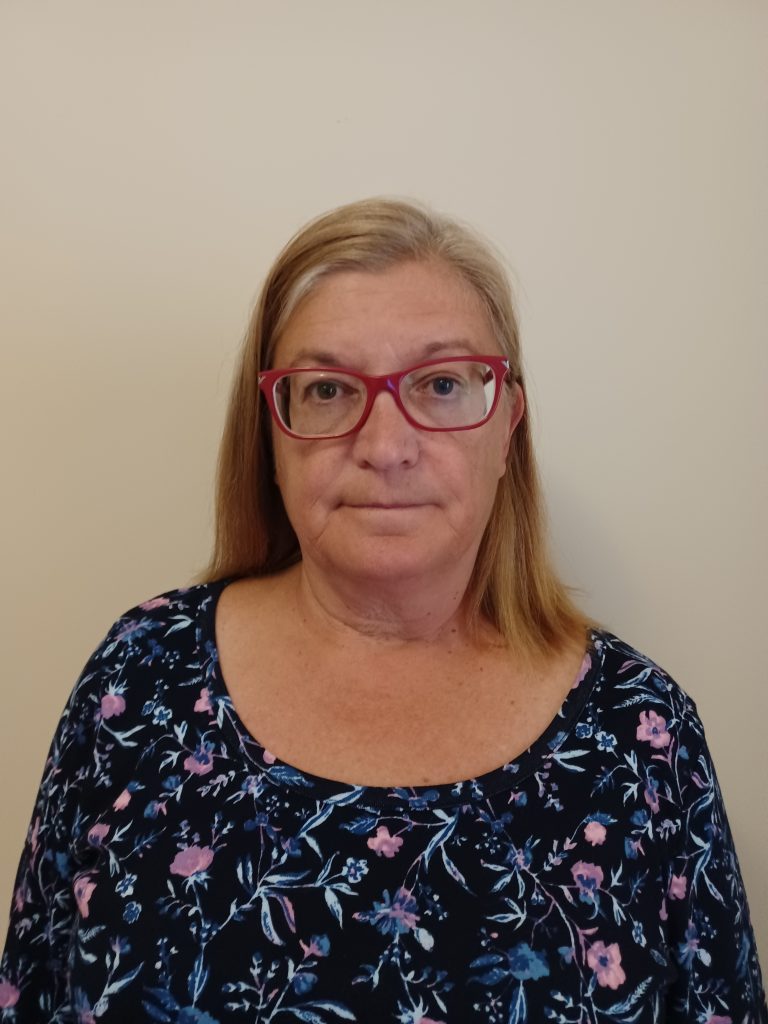
Boy Scouts collecting tattered flags for disposal
Spread the love. By Mary Stanek Your correspondent in Archer Heights and West Elsdon 3808 W. 57th Place • (773) 517-7796 . Goodbye April, hello May. Our American Flag, the symbol of our country, should always be treated with respect. But after bearing Chicago’s brutal winters and hot blazing summers along with being in the…

Oak Lawn trustee says village needs state grocery tax
Spread the loveBy Joe Boyle An Oak Lawn trustee said that Gov. J.B. Pritzker’s proposal to eliminate the state’s grocery tax will be costly for the village. Trustee William “Bud” Stalker (5th), accompanied by Mayor Terry Vorderer, recently returned from a fact-finding trip to Springfield where they learned more about the governor’s proposal to eliminate…
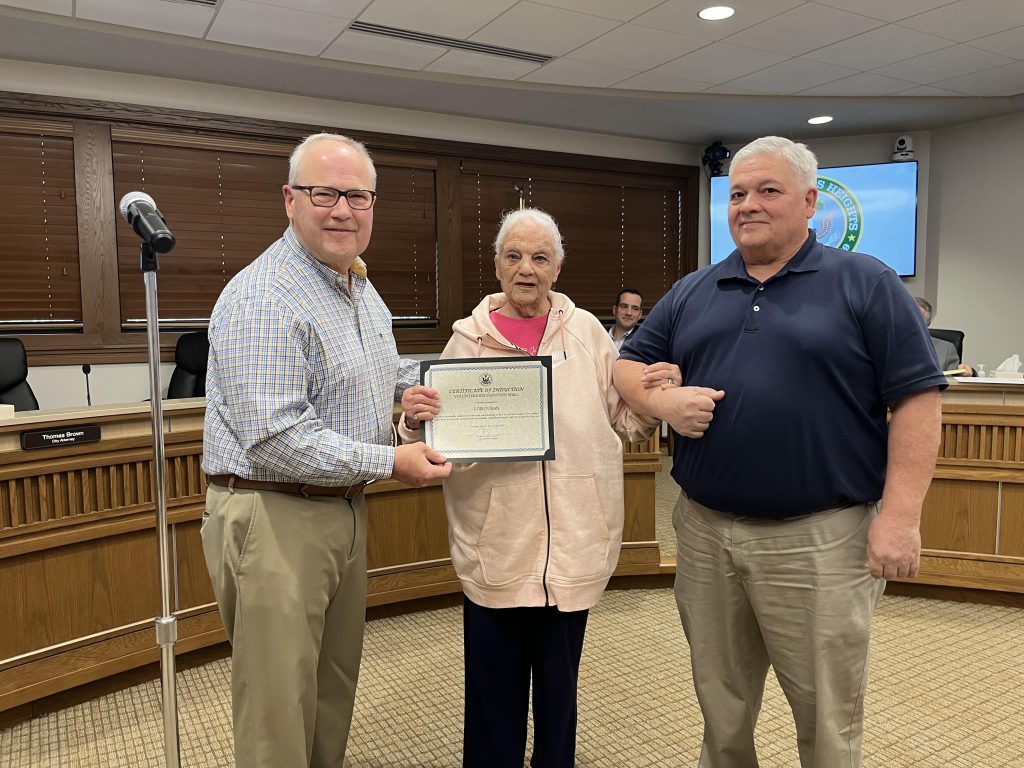
Palos Heights recognizes volunteers
Spread the loveBy Nuha Abdessalam Palos Heights handed out awards last week recognizing the services provided by volunteers through the years. The proclamations, which were read aloud during the city council meeting April 16, were a testament to the city’s volunteers and were handed out as part of Volunteer Recognition Week. Volunteers were cited for…
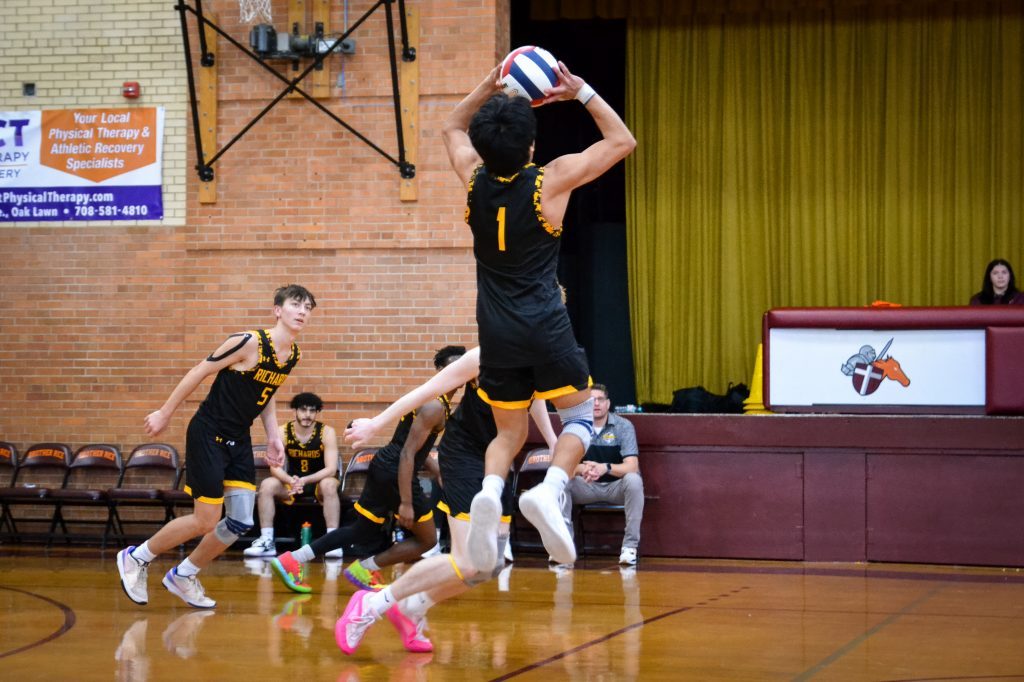
Boys Volleyball | Richards weathering struggles after run of success
Spread the loveBy Xavier Sanchez Correspondent After a tough weekend at the Smack Attack tournament, Richards got back into the win column with a two-set victory over Eisenhower in a South Suburban Red match. The Bulldogs made quick work of the Cardinals, winning 25-16, 25-15 on April 23 in Oak Lawn to snap a five-match…

SD218 puts on annual Arts Extravaganza
Spread the loveBy Kelly White The arts have become a major portion of the curriculum Community High School District 218. Showcasing those many talents, the Friends of CHSD 218’s Education Foundation proudly hosted its 15th annual Arts Extravaganza on April 5 at Eisenhower High School in Blue Island. “The Arts Extravaganza is a great event…
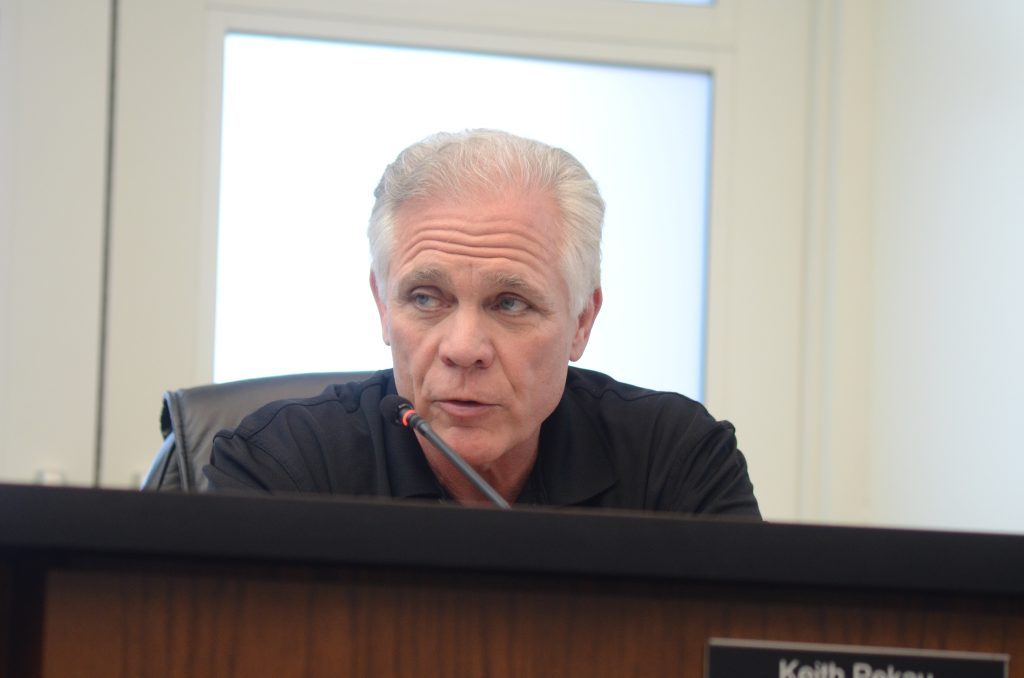
Gaming licenses to be tougher to get in Orland Park
Spread the loveBy Jeff Vorva It’s going to take longer to receive gaming licenses in Orland Park. The village board passed an ordinance April 15 that would allow table service businesses open at least 36 consecutive months to apply rather than the previous 18 months, and extended the probationary period to 18 months instead of…







